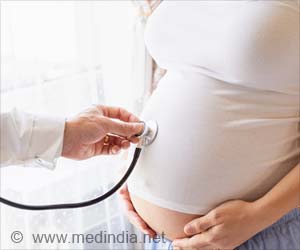University of Adelaide researchers have confirmed the benefits of repeat doses of corticosteroids for premature babies, when administered to their pregnant mothers.
University of Adelaide researchers have confirmed the benefits of repeat doses of corticosteroids for premature babies, when administered to their pregnant mothers.
The study, followed for more than two years says that there is no harm from repeat doses of corticosteroids given to mothers at ongoing risk of very premature birth (before 32 weeks). At two years of age, these children are showing no adverse effects from the corticosteroids.Lead author Professor Caroline Crowther from the University of Adelaide's Discipline of Obstetrics and Gynecology says the initial results of the trial showed that repeat doses of corticosteroids reduced breathing and other respiratory problems in these premature babies. There had previously been concern that such treatments could inhibit the babies' later growth and development.
"Our new results show that at two years old the children born to mothers who were given repeat corticosteroids were no more likely to have health or development problems than those born to women who weren't given the repeat doses," says Professor Crowther, who is based at Adelaide's Women's and Children's Hospital. "There were no differences seen between the study treatment groups for body size measurements of weight, height and head circumference.
"Our recommendation from these latest results is that given the clear early health benefits shown for babies, without harm at two years, repeat corticosteroids can be considered beneficial where women are still at risk of very pre-term birth a week or more after the first course of corticosteroids”, he added. These results were published in the international journal, The New England Journal of Medicine.
The study, known as the Australasian Collaborative Trial of Repeat Doses of Steroids, or ACTORDS, is the largest in the world to date, with 982 women and their babies recruited, and involving 23 hospitals in Australia and New Zealand. The two year follow up assessed 1047 (96 per cent) of the children involved in the trial. The children were seen by a pediatrician and a developmental psychologist who assessed vision and hearing, their developmental milestones, body size, blood pressure, behavior and general health. "Until now there has been a lack of high quality evidence, from well-designed, large randomized clinical trials, assessing the efficacy and safety of repeat doses of betamethasone given to women at ongoing risk of very preterm birth, and no reports on the health of the children later," Prof Crowther was quoted.
Earlier results in the study showed that babies born to women who received repeat corticosteroids were less likely to have respiratory problems after birth and breathing problems were less likely to be severe. These babies were also less likely to have other serious health problems than babies whose mothers did not receive repeat corticosteroids. What follows next is the early school age follow up for the children enrolled in the ACTORDS trial to provide information about the later health and development of the children. This part of the study is now funded by NHMRC.
Advertisement
Source-Medindia
ANN /J






